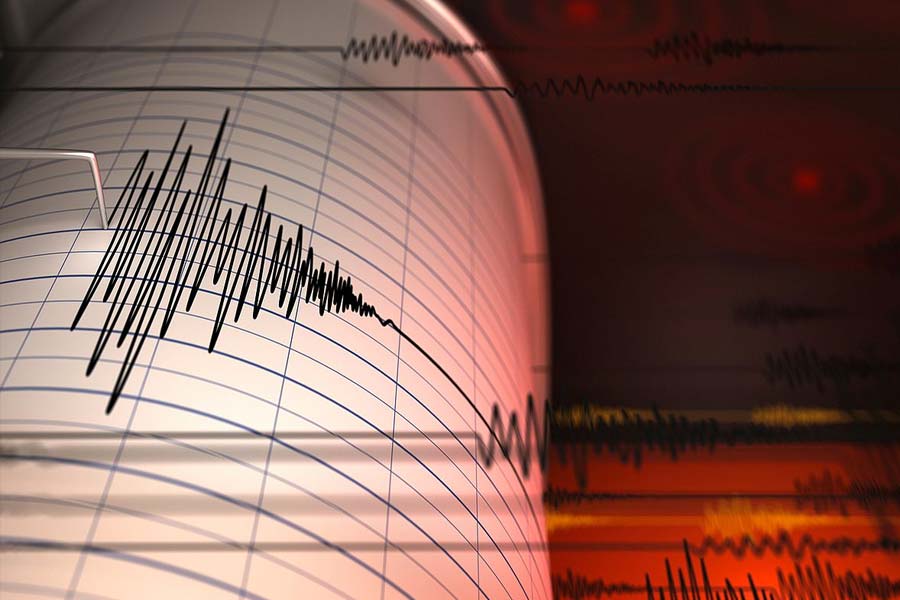An earthquake of magnitude 3.1 struck Faridabad in Haryana at 4.08 pm on Sunday, the National Centre for Seismology said.
It said the epicentre for the quake was nine kilometres east of Faridabad and 30 kilometres southeast of Delhi.
The quake triggered panic among people, with many in Delhi and the National Capital Region reporting vigorous shaking of furniture.
Several social media users shared visuals of people rushing out of residential buildings.
Previously on October 3, strong tremors reverberated through parts of north India, including the Delhi-NCR, after a series of earthquakes, the strongest being of magnitude 6.2, jolted Nepal in quick succession.
India is located in a seismically active region. But with a lot of microearthquakes occurring every day, the stored-up energy gets released, according to Director O P Mishra of the National Centre for Seismology, Ministry of Earth Sciences.
Experts say the impact of a large-scale earthquake can be reduced if people and institutions strictly comply with the bylaws and codes to build resilient structures.
They say the resonant frequency of a building can play a critical role in determining the level of damage that it experiences during an earthquake.
Buildings have natural frequencies of vibration, also known as resonant frequencies, which are determined by their mass, stiffness and size. The ground motion during an earthquake can excite these natural frequencies, causing the building to vibrate at its resonant frequency.
If the frequency of the ground motion matches or is more than the resonant frequency of a building, the structure will experience significant amplifications of the ground motion, leading to more intense shaking and potentially causing significant damage.
Except for the headline, this story has not been edited by The Telegraph Online staff and has been published from a syndicated feed.











